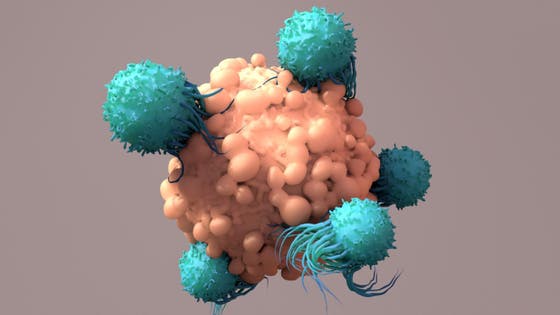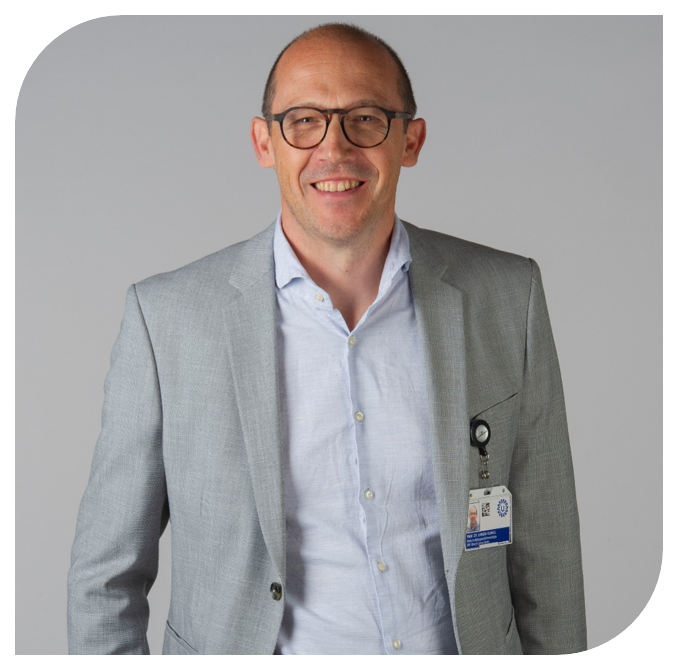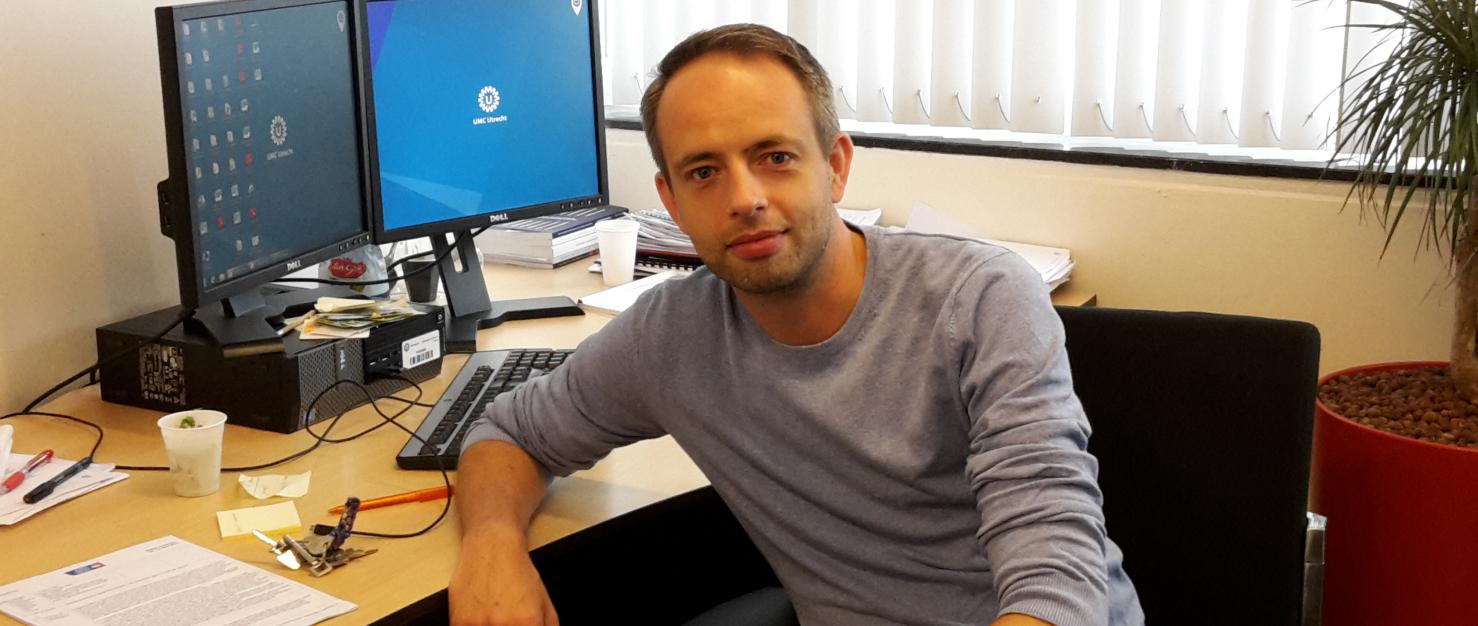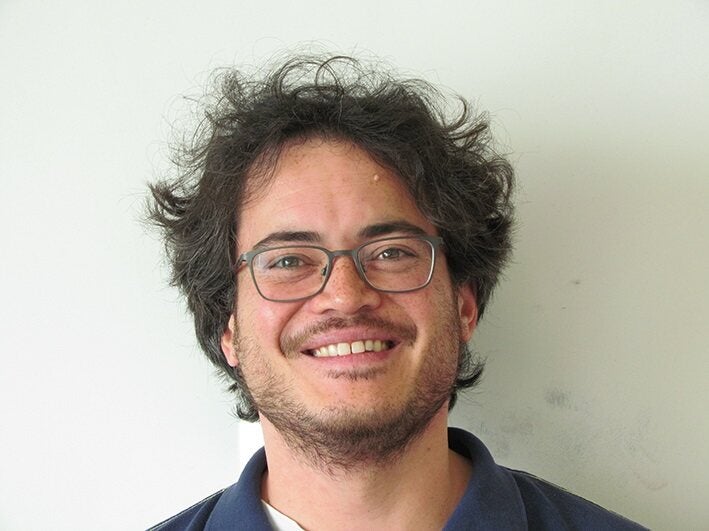Dec 14: Tumor immunology research rewarded by KWF

Jürgen Kuball, Victor Peperzak and Dennis Beringer, all three as researchers connected with strategic programs I&I and Cancer, have received grants from KWF. With these grants, they hope to use immunotherapy more effectively against head and neck cancer, liver cancer, multiple myeloma and other tumor types. KWF is funding these projects with a total of almost € 2.5 million.
The human body is one big battlefield: constantly fighting all kinds of invaders, often without us even realizing it. Think of viruses, bacteria, fungi but also cancer cells: an army of T-cells (a type of white blood cell) waits for them and clears them away. This ingenious self-defense mechanism serves as the basis for designing immunotherapy. This treatment activates and strengthens the immune system. Doctors are now successfully using immunotherapy for a variety of conditions.
1. Strengthened army of immune cells - Jürgen Kuball (Center for Translational Immunology)
There are several ways to strengthen the immune system in the fight against cancer. For example, researchers can multiply the body's own T cells. But they can also genetically modify the body's own immune cells, allowing them to fight the battle in a more targeted way. The latter is the case with TEG therapy, which is the focus of one of the new studies. TEGs are genetically engineered T cells, combining the best of two types of T cells (α-β and γ-δ). A patient's own immune cells are taken away, modified and then returned to the patient. The enhanced army of T cells can thus recognize and eliminate cancer cells more quickly and effectively. The TEGs were developed by Jürgen Kuball MD PhD (professor of hematology at UMC Utrecht) and his research group. In previous experiments at the cellular level and in mice, the researchers have shown that treatment with this form of immunotherapy is safe and effective. Its application in humans is now also being tested: this year, the first complete remission was observed in a leukemia patient during a clinical trial. This gives great hope for further application in humans.

Based on these initial results, Jürgen will now start working on the 2nd generation of TEGs. For this, KWF is giving him over € 775,000. He is going to build TEGs differently, with different and multiple proteins. This will make them even more effective. The new generation will be able to recognize more types of cancer. Some tumors are in fact protected by a powerful 'firewall' of their own. This is especially the case with solid tumors (cancers in organs and tissues). Jürgen and his team also want the 2nd generation to remain active longer and in greater quantities, to control the tumor better and to stimulate other immune cells. In mice, the first positive results have already been achieved: tumors became smaller, and healthy cells were not at risk. Jürgen is now focusing on developing a treatment for patients with head and neck tumors. This type of cancer is uncommon, often detected at a late stage and therefore difficult to treat. He hopes that with this more powerful TEG, he will be able to start clinical trials in patients with head and neck tumors more quickly. In addition, he expects that this improved therapy can also be used in other types of cancer. "We are now developing T cells that are more resistant to the defense mechanisms of cancer cells. This is currently a major challenge in treating cancer with immunotherapy," Jürgen says. "Research on the first generation of TEGs is certainly continuing, because we have seen that they seem to be effective. The next generation is a good addition, but of course we will first thoroughly investigate whether our ideas really work and are safe before testing them in patients."
2. CAR-T with extra boost - Victor Peperzak (Center for Translational Immunology)
Associate Professor Victor Peperzak PhD is trying to improve CAR T cell therapy for multiple myeloma patients with his new research. To do so, KWF and funding partner Alpe d'HuZes are giving him more than € 850,000. Like TEGs, CAR T-cell therapy is a form of immunotherapy in which T cells are genetically modified. In this treatment, T cells are taken from patients, genetically altered into CAR T cells and put back into them. The genetically modified immune cells are equipped with a special protein that acts like an antenna: as soon as it recognizes the cancer cell, it immediately sounds the alarm. CAR T cells can thus clear tumors better and provide protection longer than the patient's non-adapted T cells. CAR T-cell therapy has already been used successfully in a number of blood cancers. But recurrence after treatment remains a problem. This is especially true for people with multiple myeloma, a rare form of bone marrow cancer in which plasma cells (a special type of white blood cell that produces antibodies) proliferate.

Victor and his research group now want to improve the way CAR T cells kill cancer cells. They have already shown in a previous study that genetically modified immune cells can be additionally armed with NOXA. This is a toxic molecule that is specifically released into myeloma cells and kills tumor cells there. In the new research project, Victor and his team want to determine how to produce and apply the enhanced CAR T-cell therapy as efficiently as possible. Furthermore, they want to see if the new therapy in multiple myeloma works better than existing CAR T-cell treatment. Finally, they also want to rule out damaging healthy tissue by adding NOXA. To this end, they will test the new treatment at the cellular level, in mice and in 3D culture models with bone marrow cells from myeloma patients. This study should serve as the basis for a new clinical trial to be set up in myeloma patients. "CAR T-cell therapy directed against myeloma cells initially gave tremendously encouraging clinical results. In almost all patients, the cancer cells were cleared up and seemed to be gone, but unfortunately they returned over time," Victor said. "Therefore, we developed a method to allow CAR T cells to also clear the more resistant myeloma cells. We expect CAR T cell therapy with this technology to work more efficiently and prevent or delay cancer recurrence."
3. Proteins at work - Dennis Beringer (Center for Translational Immunology)
Assistant Professor Dennis Beringer PhD, who is part of Jürgen Kuball's research group, focuses on so-called GABs. These are therapeutic proteins that bring T cells into contact with tumor cells, allowing the cancer to be detected and killed more quickly. Dennis will receive more than € 790,000 for this from KWF. GABs can be produced faster, easier and cheaper than the aforementioned TEGs. Those genetically modified cells are obviously promising but they are still more difficult and expensive to make. TEGs must be developed on a patient-by-patient basis, which is time-consuming and makes large-scale application difficult. GABs, on the other hand, can be produced more easily and more cheaply in large quantities. As a result, more patients can be treated more quickly at a lower cost. During previous research focused on leukemia, Dennis and his colleagues have already developed GABs with promising results: cancer cells were recognized faster, and tumor growth in mice was slowed.

Now Dennis will improve these GABs so that they help T cells signal and eliminate a wider range of cancer cells. In doing so, he is working primarily with liver tumor organoids. Organoids are mini-organs or tumors that have been grown in a laboratory. The organoids in this study were made available by the research group of principal investigator Weng Chuan Peng at the Princess Máxima Center for Pediatric Oncology. Dennis' goal is to use the improved GABs to develop immunotherapy for various types of cancer, solid as well as non-solid types, not just liver cancer. Dennis will now first determine how to get the GABs to bind to tumor cells as well as possible, so that fewer are needed for the same effect. Then he is going to add another protein to the GABs that will make the T cells even more active. "For many cancers, immunotherapy does not yet work optimally. So developing new strategies and improvements to existing concepts is very important to eventually be able to treat a large group of patients with immunotherapy," Dennis says. "We hope that the improved GABs will eventually be tested in patients. First we are going to prove that they are safe and effective. After that, preparations for a clinical trial can begin."
